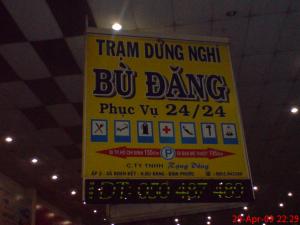HPM-Project charter and Scope statement
Process groups and Process knowledge areas
5 process groups:
-
Initiating process
-
Planning process
-
Executing process
-
Monitoring and Controlling process
-
Closed process
9 process knowledge areas:
-
4 areas to identify the goals and scope of the project: Scope, Time, Cost, and Quality
-
4 areas to achieve those goals: Human resources, Communication, Risk, and Procurement management.
-
And the final is project integration management.
Project Charter
It is the first process in the initiating process group which helps you initiate the project properly and gets all stakeholders into account.
Input:
-
Contract: The first thing to take into account.
-
Project statement of work ( SOW): Specify the needs of the company, scope of the project and the customer.
It should follow this form:
Statement of Work
-
Scope: Describe work in detail: Hardware, software and the mature of work.
-
Place of work: where the work is taken placed.
-
Time: Start date, finish date, working hour, and other time scheduling.
-
Schedule for transferring result: Specify clearly task name, detail and period as well.
-
Standard being applied: Mention about any company or industrial standard will be used to do the project.
-
Standard to justify the result: Describe how the customer will accept the result. On the other hand, it means that you must define: how is it called DONE.
-
Special requirements: Any things other than above, for instance, license.
-
Enterprise environmental factors: Take your company environment into account: culture, structure, standard, resources, infrastructure, information system,…
-
Organizational process assets: Rule and regular of the company, standard process, financial procedure and risk management. The paper work is important for the PM since you might in a situation where your member did something, like customer relationship, and then gave you a receipt of 100$. However, in the paper of the company. He only has 50$ maximum for that action.
Output:
Here are what you should achieve after processing the input. The result will be presented to everybody involved in the project including stakeholders.
-
Project name, sponsor name
-
Relationship between project objectives and company objectives. Why is it important? Being a project manager you must be responsible for the development of the company. Therefore, the relationship must be taken into account. If they are in opposite side then we should reconsider.
-
Estimated time for the project.
-
Authorization of PM: As a project manager of the project, you should know what you are allowed to do what are not. IMPORTANT!
-
Other functional departments and how to get them in a meeting.
-
Budget, Resources
-
Describe in short the goals of the project.
-
Sign of sponsor: in fact, all must be signed, however, we should pay attention on sponsor.
Here is the paper form which will hand out to everybody. It makes sure that everyone understands the project.
Project Charter
Project title:
Start date: End date:
Budget information:
Project Manager:
-
Name
-
Phone
-
Email.
Project objectives:
Approach:
Roles and Responsibilities:
|
Role |
Name |
Organization/ Position |
Contact information |
Sign-off: all member and stakeholders
Comments: Comments from stakeholders if applicable.
Scope statement
To have a preliminary project scope statement.
Input: Pretty much the same as project charter plus with the output of the project charter.
Output:
-
Project justification: Give points of view about the possibility of the project.
-
Short description of the project: Tell in general what the project is about.
-
Summary product characteristics and requirements.
-
Project success criteria: define when and how the project is done. It is very important.
-
Project constraints: constraints on budget, time and other if applicable.
-
Assumptions: depend pretty much on the experiences of the PM, information.
Finally we have a form of scope statement:
Project title:
Date: Prepared by:
Project justification:
Product characteristics and requirements:
1.
2.
3.
Summary of project deliverables:
-
Project management-related deliverables: business card, charter, team contract, scope statement, WBS, schedule, cost baseline, status reports, final project presentation, final project report, lesson-learned report, and any other documents required to manage project.
-
Product-related deliverables: research reports, design documents, software code, hardware, etc…
Project success criteria:
It is quite a lot theory. Depending on the type and weight of project you are working on, you can omit some of them. The important thing is that there are some final result on papers.
How am i going to practice this? Imaging one simple project, like making a website and then apply the process. No need to really implement the website.











